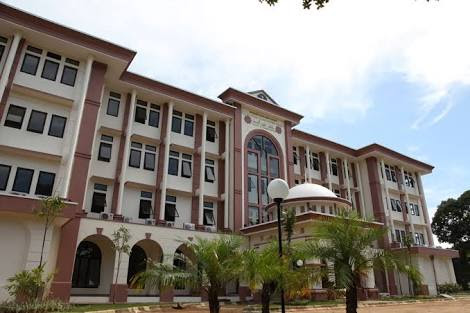IMPLEMENTATION OF THE MERDEKA BELAJAR CURRICULUM THROUGH THE APPLICATION OF PROJECT-BASED LEARNING MODELS TO IMPROVE STUDENT LEARNING OUTCOMES IN MATHEMATICS LEARNING
IMPLEMENTASI KURIKULUM MERDEKA BELAJAR MELALUI PENERAPAN MODEL PEMBELAJARAN BERBASIS PROJECT UNTUK MENINGKATKAN HASIL BELAJAR SISWA DALAM PEMBELAJARAN MATEMATIKA
Abstract
The merdeka curriculum is a form of evaluation of the previous curriculum, namely the 2013 curriculum. In an independent curriculum, students are no longer forced to study subjects that are not their main interest. Therefore, a learning model is needed to support this independent curriculum's implementation. One suitable learning model to implement the curriculum is a project-based learning model. This study aims to improve student learning outcomes in mathematics learning through the Project Based Learning learning model. This type of research is classroom action research with data collection carried out through observations, and tests. The research subject is class XII in statistics subject totaling 26 students. The data analysis technique used qualitative and quantitative and was carried out for 2 cycles. The results showed that the application of the project-based learning model could improve student learning outcomes in learning mathematics. This can be seen from the average score of learning outcomes in the cognitive domain in the first cycle of 57.12% increased to 82.88% in the second cycle, the average score of learning outcomes in the psychomotor domain in the first cycle of 53.65% increased to 84.61%, and the average score of learning outcomes in the affective domain in the first cycle of 72.5% increased to 83.85%. This shows that the application of the project-based learning model can improve student learning outcomes.
Downloads
References
Afriana, J. (2015). Project based learning (PjBL). In Makalah untuk Memenuhi Tugas Mata Kuliah Pembelajaran IPA Terpadu (Makalah). 1-39 Retrieved from https://www.academia.edu/download/56413151/MakalahPjBLJakaAfriana.pdf.
Ananda, A. P., & Hudaidah. (2021). Perkembangan kurikulum pendidikan indonesia dari masa ke masa. SINDANG-Jurnal Pendidikan Sejarah Dan Kajian Sejarah, 3(2), 102–108. Retrieved from https://ojs.stkippgri-lubuklinggau.ac.id/index.php/JS/article/view/1192.
Anggraena, Y., Felicia, N., G, D. E., Pratiwi, I., Utama, B., Alhapip, L., & Widiaswati, D. (2021). Kajian akademik kurikulum untuk pemulihan pembelajaran. Pusat Kurikulum Dan Pembelajaran Badan Standar, Kurikulum, Dan Asesmen Pendidikan Kementerian Pendidikan, Kebudayaan, Riset, Dan Teknologi, 123. Retrieved from https://repositori.kemdikbud.go.id/20029/1/BukuMerdekaBelajar2020.pdf.
Darmawan, A., Ramlawati, & Rante, P. (2022). Model problem based learning meningkatkan hasil belajar siswa kelas VIII C 1 SMP Islam Trijaya pada materi zat aditif dan zat adiktif. Global Journal Science IPA, 1(1), 70–75. https://doi.org/10.35458.
Hartini, A. (2017). Pengembangan perangkat pembelajaran model project based learning untuk meningkatkan kemampuan berpikir kritis siswa sekolah dasar. ELSE: Elementary School Education Journal, 01(2a), 6–16. https://doi.org/10.30651/else.v1i2a.1038.
Iskandar, S., Rosmana, P. S., Anggraeni, I. P., Sulistyorini, S., & Anisa, P. S. (2022). Perkembangan dan penerapan kurikulum serta pembelajaran di masa pandemi covid-19. Jurnal Sinektik, 5(2), 40–50. https://doi.org/10.33061/js.v3i2.7398.
Kristiyanto, D. (2020). Peningkatan kemampuan berpikir kritis dan hasil belajar matematika dengan model project based learning (PJBL). Mimbar Ilmu, 25(1), 1-10. https://doi.org/10.23887/mi.v25i1.24468.
Maghfiroh, N., & Sholeh, M. (2022). Implementasi kurikulum merdeka belajar kampus merdeka dalam menghadapi era disrupsi dan era society 5.0. Jurnal Inspirasi Manajemen Pendidikan, 09(05), 1185–1196. Retrieved from https://ejournal.unesa.ac.id/index.php/inspirasi-manajemen-pendidikan/article/view/44137.
Mariyaningsih, N., & Hidayati, M. (2018). Bukan kelas biasa: teori dan praktik berbagai model dan metode pembelajaran menerapkan inovasi pembelajaran di kelas-kelas inspiratif (Aditya Kusuma Putra (ed.); Cetakan Pertama. Jawa Tengah: CV Kekata Group.
Rais, M. (2010). Model project based-learning sebagai upaya meningkatkan prestasi akademik mahasiswa. Jurnal Pendidikan Dan Pengajaran, 43(3), 246–252. https://doi.org/10.23887/jppundiksha.v43i3.129.
Sadewa, M. A. (2022). Meninjau Kurikulum prototipe melalui pendekatan integrasi-interkoneksi Prof M Amin Abdullah. Jurnal Pendidikan Dan Konseling (JPDK), 4(1), 266–280. https://doi.org/10.31004/jpdk.v4i1.3560.
Sari, R. T., & Angreni, S. (2018). Penerapan model pembelajaran project based learning (PjBL) upaya peningkatan kreativitas mahasiswa. Jurnal VARIDIKA, 30(1), 79–83. https://doi.org/10.23917/varidika.v30i1.6548.
Simatupang, E., & Yuhertiana, I. (2021). Merdeka belajar kampus merdeka terhadap perubahan paradigma pembelajaran pada pendidikan tinggi: sebuah tinjauan literatur. Jurnal Bisnis, Manajemen, Dan Ekonomi, 02(02), 30–38. https://doi.org/10.47747/jbme.v2i2.230.
Wahyu, R., Islam, U., & Rahmat, R. (2018). Implementasi model project based learning ( PJBL ) ditinjau dari penerapan implementasi model project based learning (PJBL) ditinjau dari penerapan kurikulum 2013. Teknoscienza, 1(1),50–62. Retrieved from https://ejournal.kahuripan.ac.id/index.php/TECNOSCIENZA/index.
Copyright (c) 2022 Baharullah, Sri Satriani, Fathrul Arriah, Ashar Hidayah

This work is licensed under a Creative Commons Attribution 4.0 International License.

